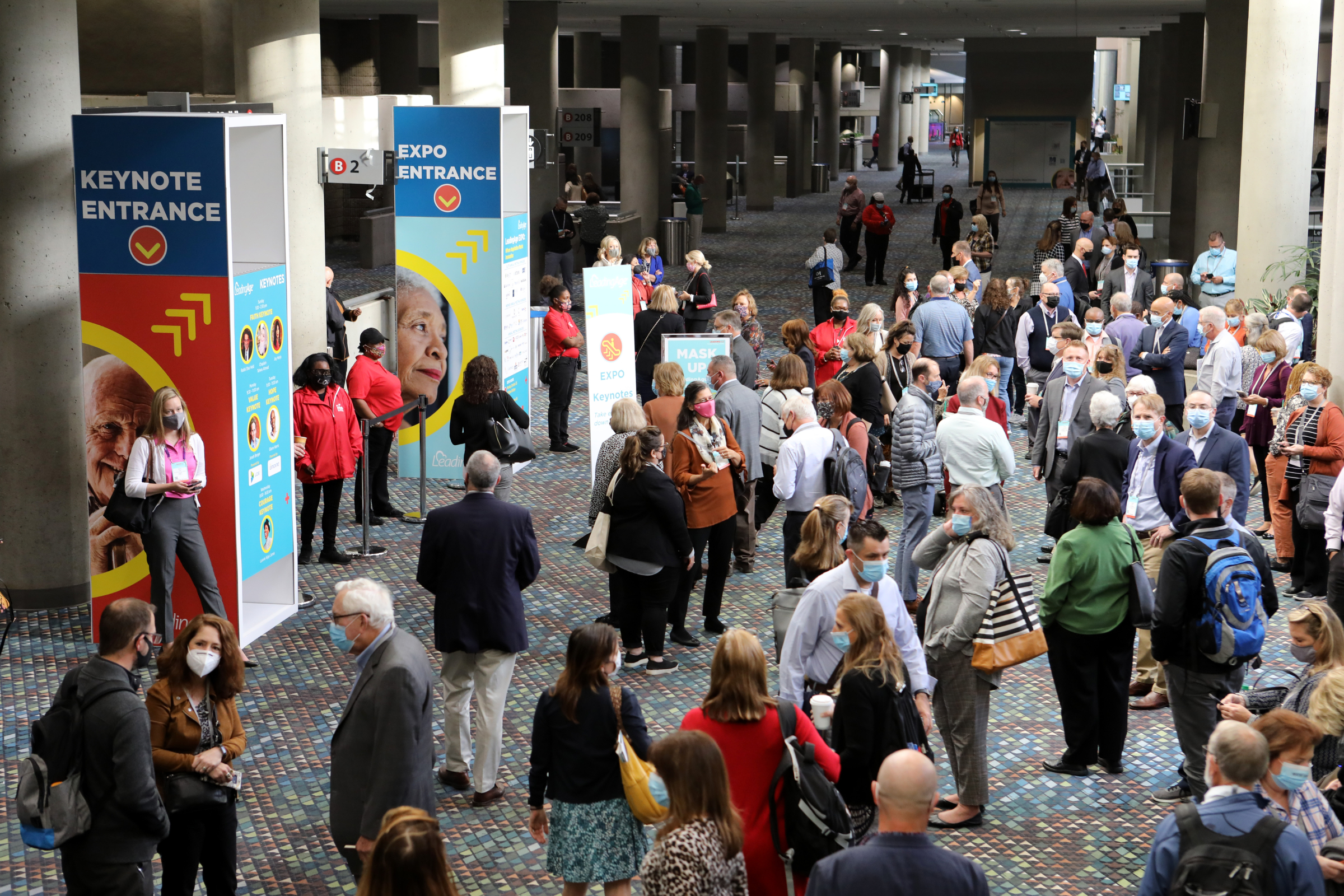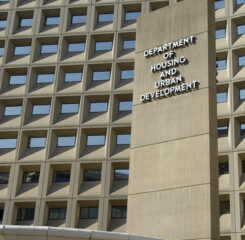HUD Outlines New Section 202 Funding, Answers Member Questions
On February 2, LeadingAge hosted a call with HUD staff to discuss new funding for senior housing. With the brand-new dollars out for competition until May 26, LeadingAge housing provider members were eager to hear more details from HUD staff.
The HUD presentation is available to view here, and a recording of the call is available here.
Notice of Funding Availability
In January, HUD had announced its latest Section 202 funding opportunity for capital advance and operating subsidy for affordable senior housing. During the February call, Tom Davis, the Director of Recapitalization at HUD, went over the basic structure of the funding notice and answered questions from members.
The Notice of Funding Opportunity (NOFO) from HUD makes $150 million available for competition, substantially more than HUD’s previous Section 202 funding availability notice from 2019, which eventually awarded $50 million. This round, HUD expects to make about 45 awards, each capped at $20 million.
Capital Advance and Operating Contracts
The Section 202 funds can go toward two uses, including capital advance or “upfront dollars” for new construction or rehabilitation to create senior housing units under HUD Section 202; secondly, the funds are available for ongoing project rental assistance contracts for the cost of operating the community. During the call, Mr. Davis clarified that applications for the project rental assistance contract funds have to include capital advance dollars, even if it’s only for $1 dollar.
Documentation
During the call, Mr. Davis outlined the threshold requirements of a successful application; for example, applicants have to have non profit status, cannot have unresolved civil rights issues with matters; and need to submit a complete and timely application. In addition, HUD requires nine categories of additional documentation, such as an environmental review where applicable; a Capital Needs Assessment where applicable (not needed for new construction or gut rehabs); and an Operating Pro Forma that calculates operating cost standards for year one rents.
Rating Categories
In order to rate applications, HUD will allot points to an application based on four rating categories, totaling 100 points possible. Mr. Davis and his staff shared that the highest-scored application received in the 2019 round of funds was 93.5 points, while the lowest received 79 points.
The rating categories give insight into HUD’s priorities for distributing the funds. For example, the rating category for capacity, project leveraging, and committed funds, which evaluates how much other financing can be leveraged to stretch the new Section 202 funds as far as possible, has the highest possible points for applicants. The next highest-scoring rating category is physical design and services. These categories, as well as the overall application, have minimum point thresholds to ensure well-balanced applications.
Distribution
While states do not have separate funding set-asides, Mr. Davis explained the regional approach that requires each of the five HUD multifamily regions receive 10% of the funds at minimum; in addition, at least 15% of the funds need to go to non-metropolitan areas.
Member Questions
LeadingAge members asked several questions of HUD staff during the call, which HUD answered in real time. LeadingAge will be submitting follow-up questions to HUD for clarification.
- Are owners of existing PRAC properties eligible to apply for Capital Advance funding for a rehab and RAD conversion of an existing 202 PRAC?
“No. Section I.A.1. specifically states that per 24 CFR 891.809, Capital Advance Funds cannot be used for the financing or re-financing of federally assisted units or properties servicing or encumbered by federally insured debt. Properties assisted under Section 202 PRACs may consider conversion under the Rental Assistance Demonstration to address rehabilitation needs.”
- Any ballpark idea of when the award announcements will be made?
“It could be 3-4 months, but that is an estimate.”
- Does the Rating factor #3 related to employment and contracting with Section 3 individuals pertain strictly to the development of the project or can it include employment in the ongoing operation of the building/programs?
“This is not strictly related to development. To the greatest extent feasible, applicants must provide opportunities for training and employment arising in connection with the rehabilitation or construction of this supportive housing project to Low- and Very-Low-Income Elderly Persons residing within the metropolitan area (or non-metropolitan county) in which the project is located. Awardees will be required to report to HUD on Section 3 outcomes.”
- Can multiple applications be submitted for different projects?
“Yes, Sponsors can submit multiple applications for different projects.”
- Can the 202 be used for a former tax credit property for an addition, and if so, what are the environmental documents that would be needed since the building already exists?
HUD is consulting legal counsel on the eligibility of tax credit-financed properties for the Section 202 funds.
- On page 11 of the NOFO it says “Non-Profit entities associated with public bodies or tribes are eligible applicants” This seems to be in conflict with later on page 12 on the first bullet, which states that non-profit applicants cannot be public bodies. Could you please explain this?
“We are working to correct this. Non-profit entities associated with public bodies or tribes ARE eligible applicants.”
Current and Future Resources
To help providers fill out the application successfully, HUD has made FAQs and a toolkit available on its website. Because Congress has approved more capital advance funds for the Section 202 program, HUD plans to release funding opportunities annually.

Most Recommended
December 18, 2024
Year-End Package Analysis: Wins, Ins, and Outs for Aging Services
December 10, 2024
4 Top Tech Themes from 2024
January 16, 2025
Pathways for Foreign-Born Workers
November 27, 2024
 Analysis: November 2024 LTC Surveyor Guidance Updates
Analysis: November 2024 LTC Surveyor Guidance Updates
Recently Added
January 16, 2025
HealthTech Features CAST VP Scott Code’s 2025 Tech Predictions
January 16, 2025
HUD Withdraws Two Proposed Rules
January 15, 2025
HUD: FAQs on Flex Cards
January 15, 2025



